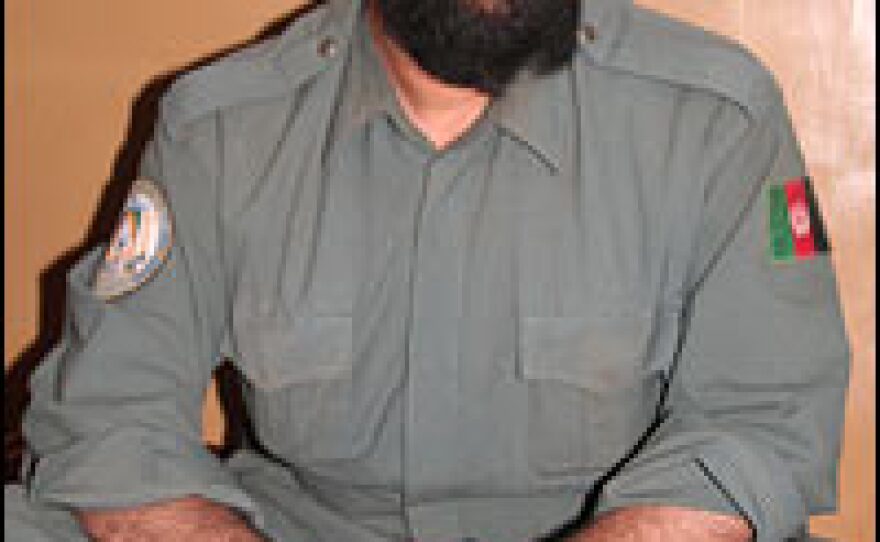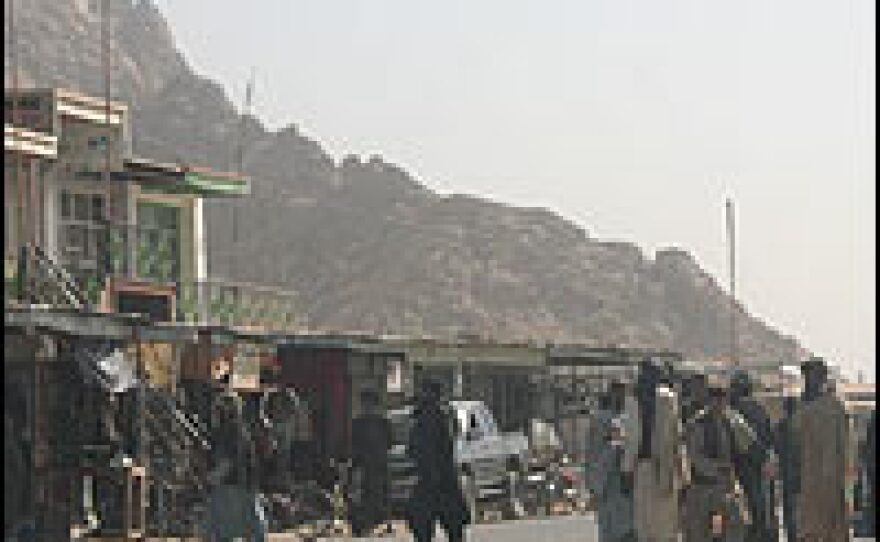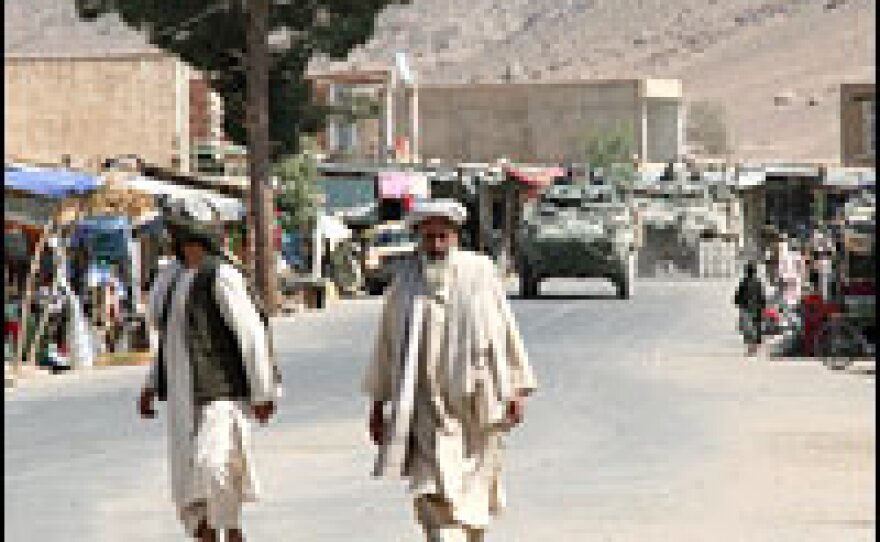


Five years since coalition troops invaded Afghanistan, NPR profiles three of the country's most important national institutions -- the police, the courts, and the national army. A three-part series examines whether they can be useful building blocks for the future of Afghanistan.
Policemen have one of the most dangerous jobs in Afghanistan. They are underpaid, and most Afghans consider them corrupt.
On a Kabul street where a suicide bomber had targeted local policemen one morning, an officer explains why he continues to come to work.
"I love my people. I love my job," he says, adding that he had wanted to be a police officer since childhood.
None of the uniformed officers have guns.
In the village of Panjwai outside Kandahar, the district's assistant police chief says he doesn't have enough officers to keep the peace. NATO and Afghan National Army soldiers had just finished a major battle with the Taliban to win back the town. Taliban fighters were rumored to still have sympathizers in the area.
"Without the Afghan National Army and the coalition forces, we cannot protect this district," says the police official, who only identifies himself as Brahim.
His predecessor had recently been relieved of his duties because of incompetence.
The U.S. military is leading efforts to transform Afghanistan's police force. Maj. Gen. Bob Durbin, commander of the Combined Security Transition Command in Afghanistan, says the Afghan police force is about two years away from making significant inroads.
"Reforming an existing institution is harder than building a new one," he says. "It's a culture of survival: survival of self, followed by family, followed by tribe. And then it ends there, here in Afghanistan. A survival of nation is foreign to them. Service to nation is foreign to them."
Durbin says Afghanistan's army has become the model of what the police force can be.
"Senior officials in the Afghan National Police have seen the army that now is respected by the people, that serves and protects its people," Durbin says. "And now you have senior officials in the Afghan National Police who want to step forward to create a professional institution."
Copyright 2022 NPR. To see more, visit https://www.npr.org. 9(MDAzMjM2NDYzMDEyMzc1Njk5NjAxNzY3OQ001))







